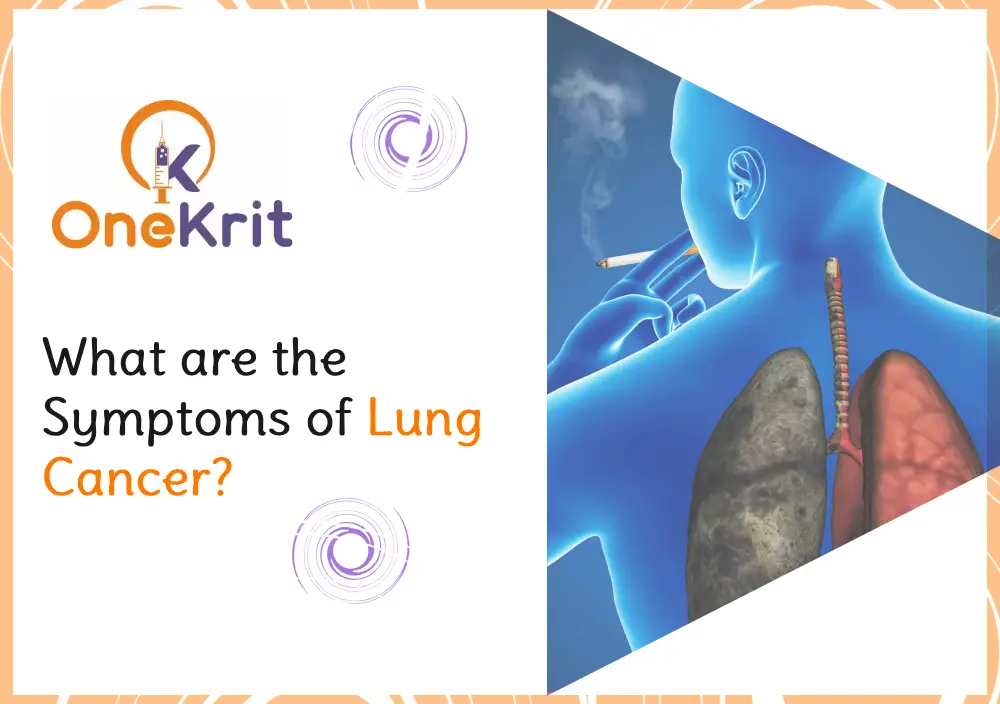Subtotal $0.00
One of the most prevalent and dangerous forms of cancer in the world is lung cancer. It arises when abnormal lung cells multiply out of control, creating tumors that obstruct regular lung function. The fact that lung cancer symptoms might be mild or confused with those of less serious illnesses is one of the primary reasons it is frequently discovered at an advanced stage.
This blog post will discuss the most typical symptoms of lung cancer and when to look for medical advice.
1. Persistent cough
One of the first signs of lung cancer is a persistent cough that either doesn’t go away or becomes worse over time. A cough associated with lung cancer typically lasts longer than a few weeks. However, coughs are frequent with colds, allergies, or respiratory infections. You shouldn’t disregard a cough that becomes worse or differs from your typical “smoker’s cough.”
2. Coughing Up Blood (Hemoptysis)
Blood in the sputum, even in little amounts, can be concerning and may be an early indicator of lung cancer. Even though infections or other lung conditions can also trigger haemoptysis, it is important to seek medical assistance as soon as this symptom manifests. To determine the underlying reason, doctors may do bronchoscopies or imaging studies.
3. Breathing difficulties
Breathing difficulties or a sense of being out of breath can occur when lung tissue becomes inflamed or when tumors obstruct or constrict the airways. At first, many patients lose this symptom as being out of shape, asthma, or age-related changes, but if the shortness of breath persists or cannot be explained, medical help is necessary.
4. Chest Pain
Another typical sign of lung cancer is pain or discomfort in the chest. The pain may be subtle, acute, or continuous, and it typically becomes worse when you cough, laugh, or breathe deeply. This happens when the cancer spreads to the ribs, pleura (the lining of the lungs), or the chest wall. This kind of discomfort is more likely to be localized and progressive than overall muscle pain.
5. Hoarseness or Voice Changes
The voice may change noticeably if cancer damages the nerves that govern the vocal cords. It’s significant to pay attention to a hoarse or raspy voice that lasts longer than two weeks. A tumor pushing on or encroaching on neighboring nerves may be indicated by changes in voice.
6. Unexplained Weight Loss and Fatigue
Constant fatigue and abrupt, inexplicable weight loss are common signs of lung cancer and many other cancers. Although cancer cells use energy and the body burns calories more quickly, weight loss results. Even after getting enough sleep, fatigue might still interfere with regular tasks while the body fights the illness.
7. Noisy and wheezing breathing
A high-pitched whistling sound known as wheezing is produced when air finds it difficult to pass through constricted or blocked airways. This can occur in cases of lung cancer when a tumour develops into or pushes against the bronchial passages, partially obstructing airflow. Patients may therefore hear odd noises during breathing, particularly when exhaling.
8. Frequent Respiratory Infections
Sometimes, recurring respiratory infections such as pneumonia or bronchitis might be a sign of lung cancer. With the right care, infections usually go away, but if they recur, especially in the same area of the lung, it may indicate that something is physically blocking airflow.
When to Get Medical Help?
Chest discomfort and coughing do not always indicate lung cancer. Nonetheless, a medical expert should always be consulted for persistent or inexplicable symptoms. Individuals who are more vulnerable, such as smokers, people who have been exposed to asbestos, radon, or secondhand smoke, should be more watchful. Life-saving early detection can be achieved using tests such as low-dose CT scans.
Although lung cancer symptoms can be ambiguous and resemble those of other common respiratory illnesses, they are frequently disregarded. The following are important warning signs: chronic cough, blood in the cough, chest discomfort, hoarseness, shortness of breath, wheezing, repeated infections, and unusual swelling. Early diagnosis and successful treatment are more likely when these symptoms are recognized and prompt medical attention.
You should never take your health for granted. If any of these symptoms apply to you or someone you know, you should see a doctor without any delay.


Comments are closed